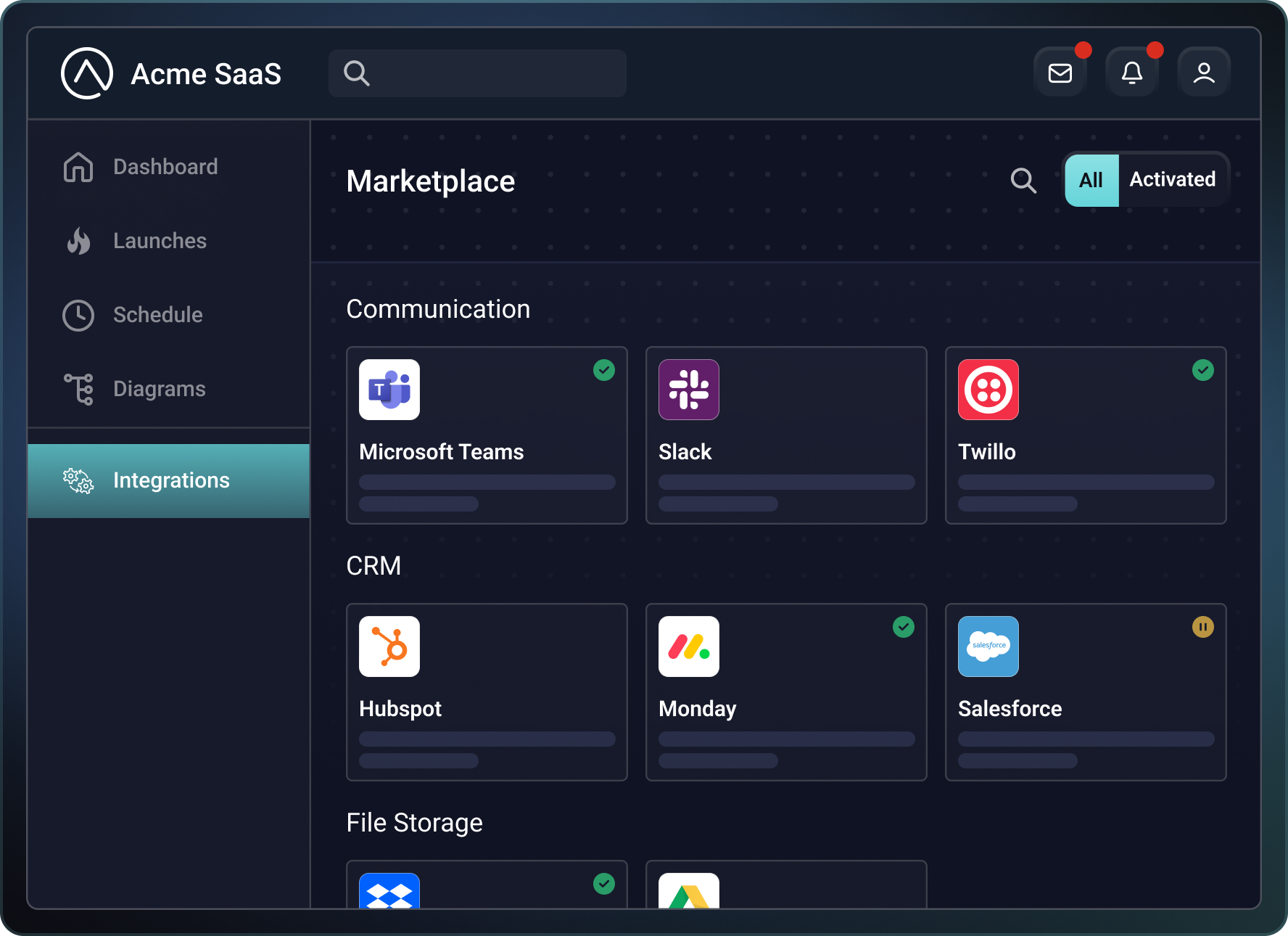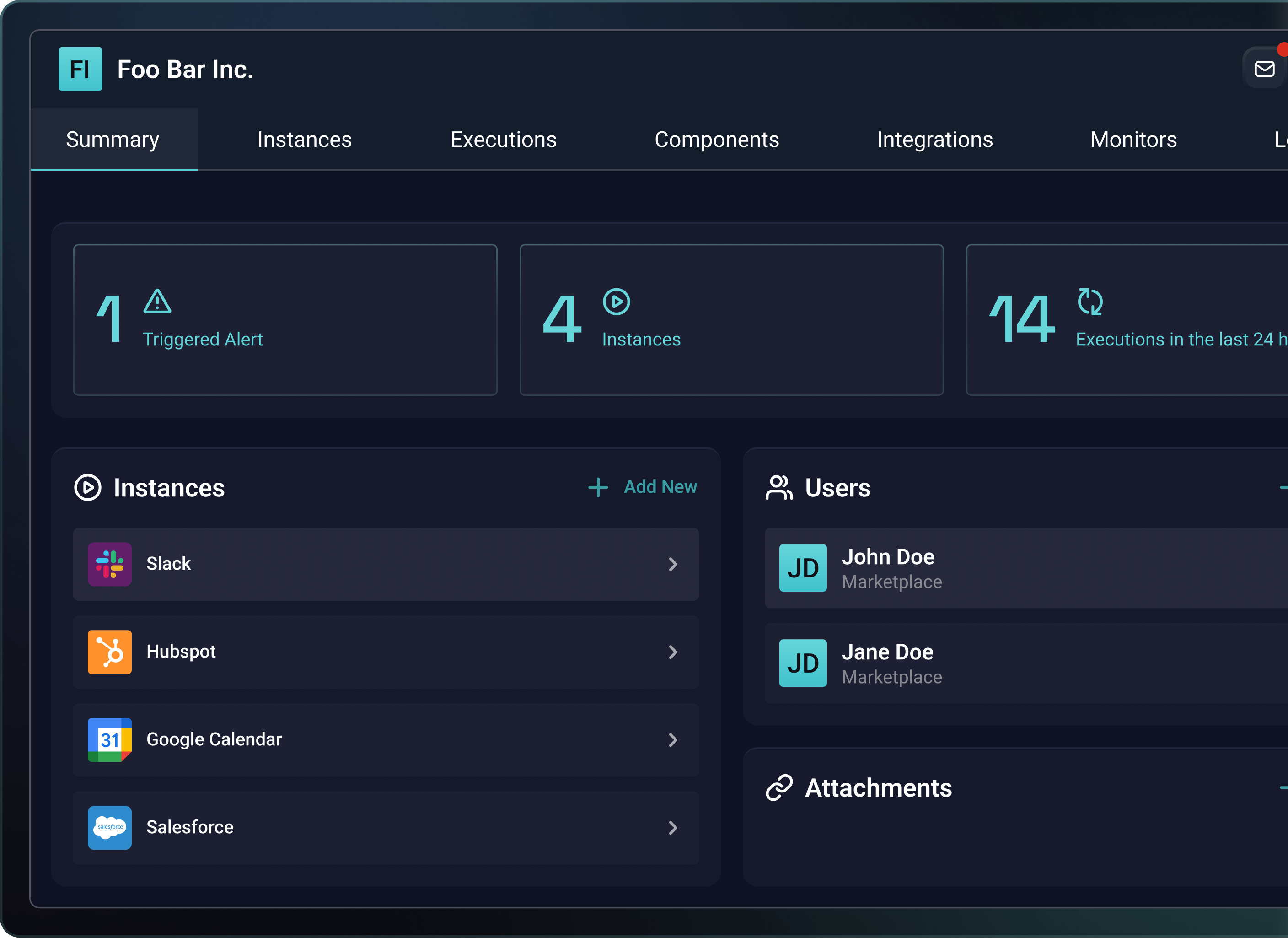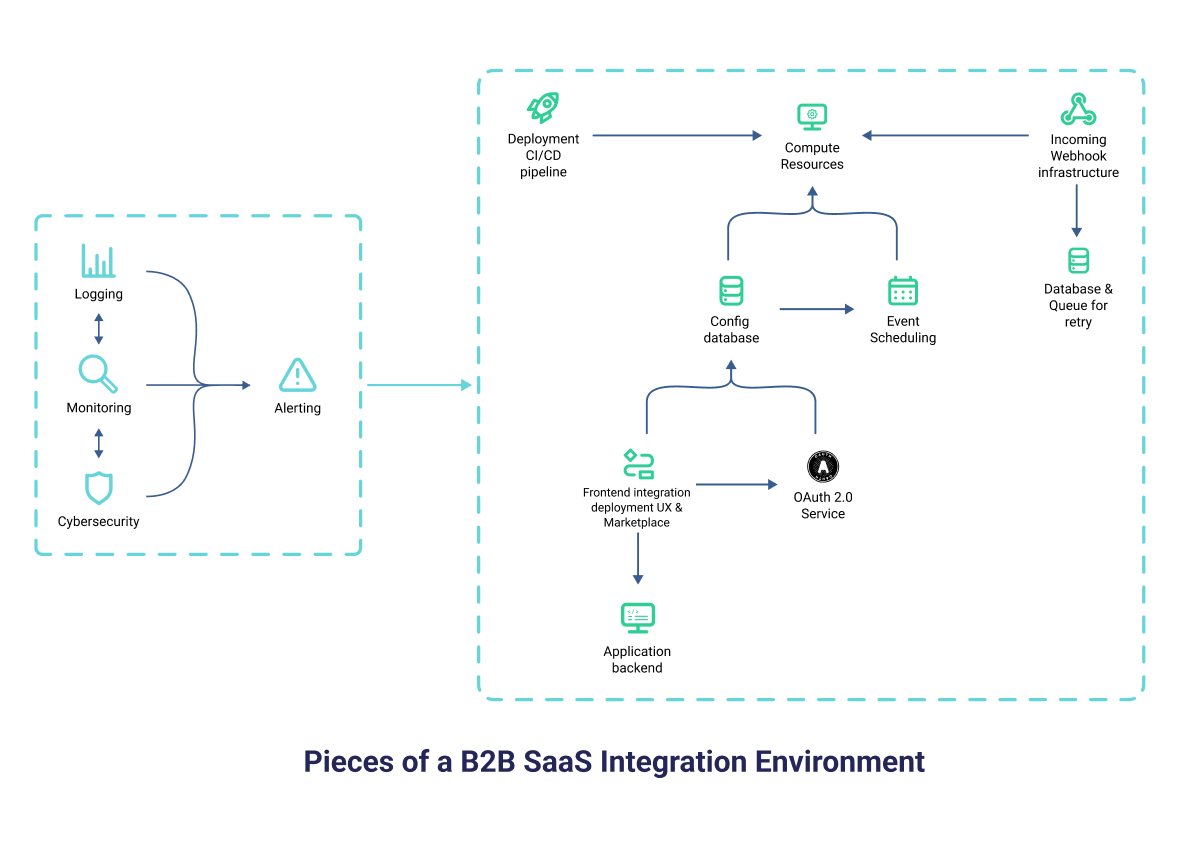What is Prismatic?
As a B2B software company, your customers expect seamless data synchronization between your application and other platforms they use.
Prismatic is an embedded integration platform as a service (iPaaS) that provides the tools and infrastructure you need to build, deploy, and manage integrations at scale.
How does my team build integrations?

You can build integrations in three ways with Prismatic:
- The low-code integration designer offers an intuitive drag-and-drop UX for both developers and technical non-developers. Use pre-built connectors to create workflows that sync data between apps.
- Developers can use Prismatic's integration SDK to build code-native integrations in TypeScript, leveraging their preferred IDE and development tools.
- Embed the low-code workflow builder in your application to allow customers to create their own custom integrations.
How do customers enable integrations?

After building and testing an integration, it's time to configure and deploy copies of the integration for your customers.
You can deploy integrations on behalf of your customers, or, more commonly, embed the Prismatic marketplace in your application to enable customer self-service. The marketplace requires minimal code using our embedded SDK and appears native to your app.
When customers deploy an integration, they are guided through a custom, intuitive configuration wizard that you design for their specific integration instance.
How do I maintain integrations?

Once customers have deployed integration instances, you need to ensure reliable data flow. Prismatic provides comprehensive tools for logging, monitoring, alerting, and observability.
You can stream logs to your favorite logging platform (like Datadog or New Relic), and you can configure notifications for issues through email or your favorite alerting system (like Slack or PagerDuty).
As your integration offerings scale, you can leverage Prismatic's GraphQL API to automate the deployment and management of your integrations.
Why not build integrations in-house?
Your engineering team is capable of building native integrations. Writing code to move data between systems is rarely the most challenging aspect - most modern applications offer robust APIs, and a developer can quickly script data transfers.
But building an integration isn't the hard part. Beyond the core logic, you must address:
- Provisioning compute resources to run your integrations
- Deployment pipelines to push updates
- Scaling integration infrastructure to handle load
- Presenting integrations within your application
- Customer configuration workflows
- Secure authentication management
- OAuth 2.0 standards (callback URLs, token refresh, etc.)
- Webhook handling and retry
- Scheduled (non-webhook) integration execution
- Log storage and observability
- Alerting and monitoring
- and more...

While your team can build this infrastructure, doing so diverts resources from your core product. Prismatic provides these capabilities out of the box, allowing your engineers to focus on delivering product value rather than burning dev hours on maintaining integration infrastructure.
How do I start?
First, sign up for a free trial.
After signing up, we recommend working through our getting started tutorial to build your first integration.